The United Kingdom and the European Union have signed an expansive new agreement to deepen security and defence cooperation across a broad range of areas, including Ukraine support, maritime security, and countering cyber threats.
Published on 19 May, the document establishes a formal Security and Defence Partnership between the two sides—marking the most comprehensive framework for UK-EU defence coordination since Brexit. Officials say the pact reflects growing alignment on strategic threats such as Russia’s war in Ukraine and global cyber insecurity.
“The UK and the EU are committed to strengthening their partnership in security and defence,†the agreement states, citing the volatile security environment in Europe and beyond.
The agreement sets out a structure of regular consultations between the UK Foreign and Defence Secretaries and their EU counterparts. A dedicated annual Security and Defence Dialogue will also take place, with preparatory working-level meetings and thematic exchanges on cyber threats, disinformation, arms control, and crisis management.
The UK will also be invited to EU high-level defence events, including the Schuman Security and Defence Forum, while EU officials may take part in UK-led meetings.
A significant emphasis is placed on joint support for Ukraine. The UK’s Operation Interflex and the EU’s military assistance mission have collectively trained more than 120,000 Ukrainian troops. The partnership aims to maintain this cooperation while exploring additional collaboration in the Balkans, Indo-Pacific, and Sahel regions.
The UK will also consider participating in future EU military or civilian missions on a case-by-case basis and may join the EU’s crisis response exercises. In turn, the EU would be invited to observe UK drills.
The two parties commit to closer coordination at sea, including operations in contested waters like the Red Sea. This includes joint efforts against the so-called “shadow fleet†of sanctions-evading oil tankers, as well as coordination around the protection of subsea infrastructure and navigation routes.
“The UK and EU will hold regular exchanges on maritime security… with the aim of promoting a free and rules-based maritime security environment,†the agreement states.
On hybrid threats, the UK and EU will collaborate on countering foreign information manipulation, infrastructure resilience, and crisis preparedness—including disinformation campaigns and hostile cyber activity.
Officials say the deal will be reviewed regularly to ensure relevance and momentum. Talks will continue on UK participation in EU defence initiatives such as PESCO, and the possible formation of an administrative arrangement with the European Defence Agency.
The agreement positions the UK as a close strategic partner of the EU, even outside the bloc’s political structures. Both sides stress their shared interests in European security, NATO integration, and multilateral stability.


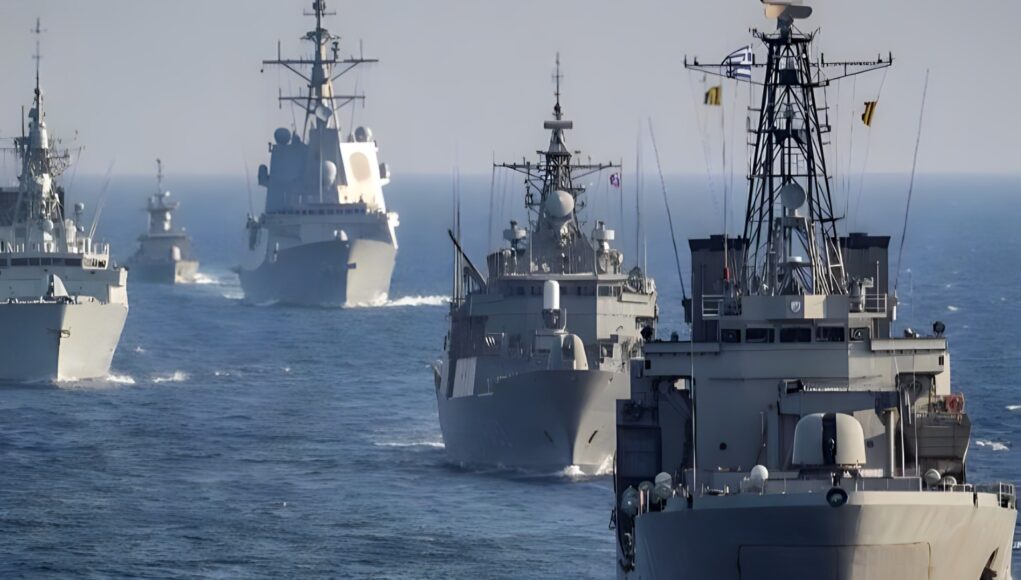
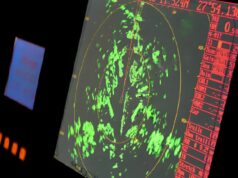
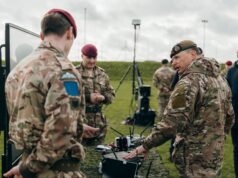

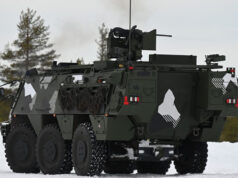

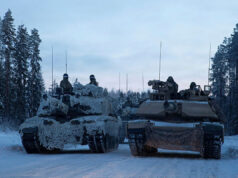

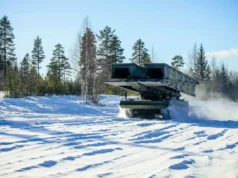



So, the UK will do all the dirty work as usual, first in, last out while the other EU military just polish their equipment.
Are we in or out of the EU, I am so confused, just like the rest of us who thought we left it.
We left to gain sovereignty, that sovereignty included picking our allies and having agreements with them..it did not mean completely ignoring and not having any agreements with the EU..the EU exits surrounds us and we have a boarder with it, it’s one of the 3 big world powers and it’s and ally ( generally) as well as our biggest trading partner..going la la la we don’t talk to the EU or interact with the EU is not what the referendum was about.
This rapprochement won’t last long. It’s Starmer grasping every political straw before his party is obliterated in the next election. The EU is not a great power, the first sign of trouble and it’s member states are falling over each other. Covid saw them closing their borders and arguing over who got what. The first bit of real Russian pressure and they will become a liability. Sign whatever in practice they won’t save us and we won’t them. Just like 1940. :->
Marky, We can work with the EU, surely, without being in it. It is in our interests to leverage every initiative for defending our continent.
It is interesting because this agreement is very very heavy on political warfare elements, such as counterterrorism, counterintelligence, counteracting information warfare, cyber warfare and also countering sub warfare kinetic actions ( sabotage and assassination).
It’s been a long time coming but Europe is finally waking up to the fact Russia has been full on attacking it for years via political warfare.. in a profoundly blatant way ( the nerve agent attack on Salisbury being the most blatant, the fact it’s also targeting the priminister with disruption and warning attacks is also blatant).
There is an article in the telegraph.. which is not very informative, but does highlight the fact the HMG is trying to showcase its political warfare capabilities and investing a billion in political warfare capabilities including more offensive cyber ( one assumes as a way to punish and attack Russia back using sub kinetic war attacks).
The “new” Cyber and Electromagnetic Command?
There’s been a new one of those every few years!
It’s currently CEMAG, Cyber and Electomagnetic Activities Group, based at Digby.
The Army have a similar sounding Group, then there’s the National Cyber Force, who’s HQ last time I looked isn’t fully built yet.
This “new” outfit, Defence spin love the word “new” seems to be taking NCFs turf.
All using the same component units as before, but under a name change thus “new.”
Endless moving of the deckchairs to get headlines while conventional forces wither.
I know enough on these organisations, and their units cover name online, yet in reality know very little.
So I sent a comprehensive FOIA request, carefully wording each question.
Stonewall refusal to answer any of my questions even at a basic level of who’s who and under who, beyond being Strategic Command assets, as the Telegreph article says.
And they grandstand this ( Healey was photographed at Corsham ) as getting tough? Due to the secrecy, its impossible to assess reasonably compared to conventional forces, which we also need and are reducing.
Spin for me, sorry.
The whole political and offensive cyber has been a bit difficult for the western democracies and I can see why. In the Cold War the liberal democracies we’re essentially given massive latitude by their populations to essentially engage in lots of none western Liberal Democratic things… essentially the west played the three monkeys ( see no, hear no, speak no) while it’s security forces essentially undertook a massive offensive and defensive political war against the communists. One of the things the end of history idiots did was not only strip our military and industrial capabilities they put a moral muzzle on our security services abilities to undertake offensive political warfare ( essentially play dirty to keep our enemies in their place and make sure they knew we were always up for the fight…active political warfare is a component of the three Cs of deterrent).
I essentially think that is the big problem… government does not want to be seen to be essentially hyper aggressive and immoral, but in the political warfare field you have to be…
I also think at the same time as having a moral muzzle our political classes became less honest and open with the public about things.. this makes it easier for enemies to undertake political warfare attacks…ignorance is weakness.
Finally I think a lack of resources to security services..due to the end of history idiots again, has lead to massive turf wars and political warfare ( which includes cyber) is everyone’s job..so everyone argued both over the crumbs and who was not going the extra work with the limited resources..
All that led to confusion, lack of clarity, lack of mission and lack of resources and respect for the political warfare domains… which is why it’s all confusion and poor action and why with the less honest political classes why you never get your FOIs answered.. ( interestingly I never go mine answered about the airframe hours left on the typhoon fleet, where the typhoons were and what were the annual flight hours…which tells me everything I need to know..because they were happy to publish all that in the 20teens.
I hope that they are investing a billion quid..stop all fighting over who’s not doing it and get on with offensive political warfare in all domains.
When did the EU really help the U.K.? They are good at talking but when it comes to military support in conflict less so. The Falklands more help to Argentina than us, Spain regularly challenges us on Gibraltar and when it comes to NATO how many of these European countries would actually come to our aid if we were attacked? With the possibility of reduced support from the US we should be thinking about can we defend our Islands on our own? At the moment highly unlikely. The EU in my mind want us for three things, our money, our Armed Forces and somewhere to dump all their illegals.